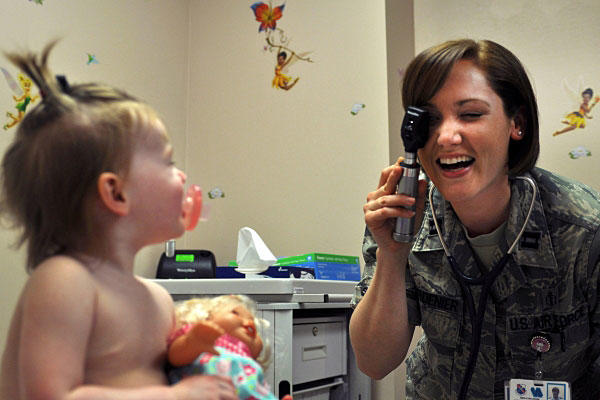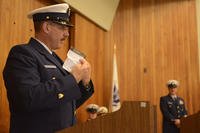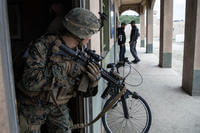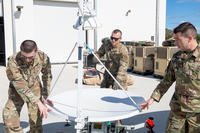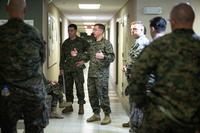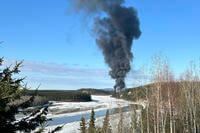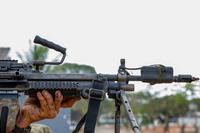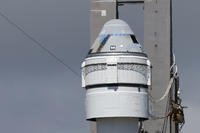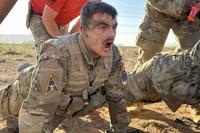Military health care advocates poked holes in a new Defense Department report released on Tricare programs serving children.
The report says the agency is meeting the needs of child users, but then identifies a long series of areas in which officials do not have enough information to draw conclusions on the quality of care available.
"This report demonstrates sufficient access and adequacy of the Tricare network for pediatric beneficiaries," the report concludes. "However, review is needed of several policies, benefits, or manual language as well as authorities, requirements, and costs before next steps can be defined."
The 108-page report done on the program, popularly known as "Tricare for Kids," was produced by the Defense Department at the request of Congress. It identifies six areas in which officials need "clarification" before drawing conclusions.
Also highlighted throughout the report are other areas in which officials do not have data to assess how children are using the system and whether those categories need to be improved.
Investigators wrote that the program lacked a proper definition for a "child with special needs." The report also states the need to modify conflicting definitions of "medical necessity" between the military and community-based care.
The report questions whether to extend Tricare's "well child" benefits past age six to come into compliance with American Academy of Pediatrics recommendations, as well as the Affordable Care Act.
Among the missing data highlighted in the report is information on why 19 percent more child Tricare users were seen at non-network emergency rooms in 2012 compared to those seen at in-network ones.
Jeremy Hilton, an Air Force spouse and health care activist whose daughter has special needs, said the portions of the report examining Tricare's Extended Health Care Offering (ECHO), which helps military families cover costs for many disabilities, are a glaring example of its gaps.
"The just-released Tricare for Kids report doesn't address the question of 'adequacy' at all. It simply regurgitates facts about the program and states these facts as if they are somehow indicative of the adequacy of the program," he said.
Officials with the National Military Family Association (NMFA) said the report's use of the word "adequate" to describe the care provided to children through Tricare is disturbing.
Karen Ruedisueli, deputy director of government relations for NMFA, said the study shows a clear disconnect between what military families report as their experience to NMFA and what Tricare officials noted.
"They are saying they provide adequate access to care, and I should hope that we can provide something more than 'adequate' access," she said. "Based on what we hear from military families, there are areas for improvement to pediatric care."
Susan Reynolds, who lobbied Congress to request the report, is a founding member of a working group of about 20 activists and organizations seeking improvements in Tricare's pediatric care. She said because officials did admit to gaps in the program, the group can move forward with seeking hearings with lawmakers on the subject and, ultimately, changes to Tricare.
"They admitted to areas where they were faulty in following standard practices," she said. "I feel an odd sense of relief because now the report is in, and now we know where Tricare's mind is at -- and that is actually a very good thing because now we can move forward."
-- Amy Bushatz can be reached at Amy.Bushatz@monster.com.
